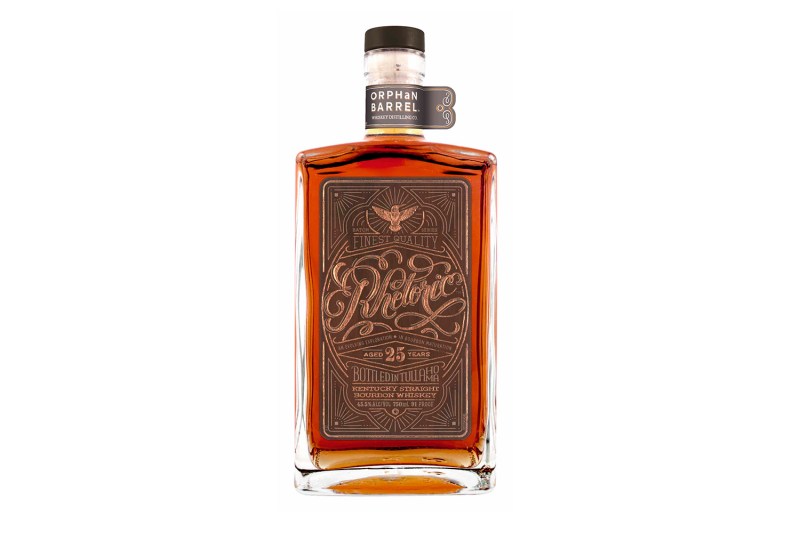Have a whiskey lover in your life? Or perhaps you the whiskey lover? Well, you might want to use some persuasive speaking and writing to get your loved ones to search out a bottle of this whiskey during the coming holiday season.
Annually for the past five years, the Orphan Barrel Whiskey Distilling Company has released a super-aged bourbon released under the name Rhetoric. Starting with Rhetoric 20, the distillery has held a small number of barrels every year since, releasing progressively older expressions. This year, Orphan Barrel is once again releasing a whiskey — aged 25 years this time — but it’s also announced that this will be the last Rhetoric release.
See why we said persuasive speaking and writing now? That’s an English joke for you. Is freshman year English class coming back to haunt you yet?

As with the previous editions, Rhetoric 25’s whiskey was found in the old Stitzel-Weller Warehouses in Louisville, Ky. The whiskey was distilled (between 1990- 1993) at the Bernheim Distillery (which was historically located at 17th and Breckenridge in Louisville) from a mash of 86 percent corn, 8 percent barley, and 6 percent rye. The whiskey used was then hand-bottled in Tullahoma, Tennessee (most likely at the George Dickel Distillery, as both are owned by Diageo).
On the nose, Rhetoric displays oak, with vanilla, dried fruit, cherries, and some spice coming to the forefront as well. The palate is also oak-forward, with baking spices, caramel, some muted sweet corn, and dark chocolate coming through. The finish warms all the way down. At 45.5 percent alcohol by volume, it is the strongest of the Rhetoric releases (each has gone up .1 percent in alcohol, starting with Rhetoric 20, which was 45 percent ABV). Just as the proof has gone up year after year, the color of wood texture in the label has gotten dark, representing the whiskey itself getting darker in color with every subsequent year.
Rhetoric 25 will be sold nationwide but in extremely limited quantities. If you manage to find it, the whiskey will retail for around $140. If you can’t get a hold of any Rhetoric 25, you might still be able to find one of Orphan Barrel’s other releases, such as Forged Oak, Lost Prophet, Barterhouse, or The Gifted Horse.
Then, if you can’t find any of those, why not try picking up a bottle of something like Fistful of Whiskey?



